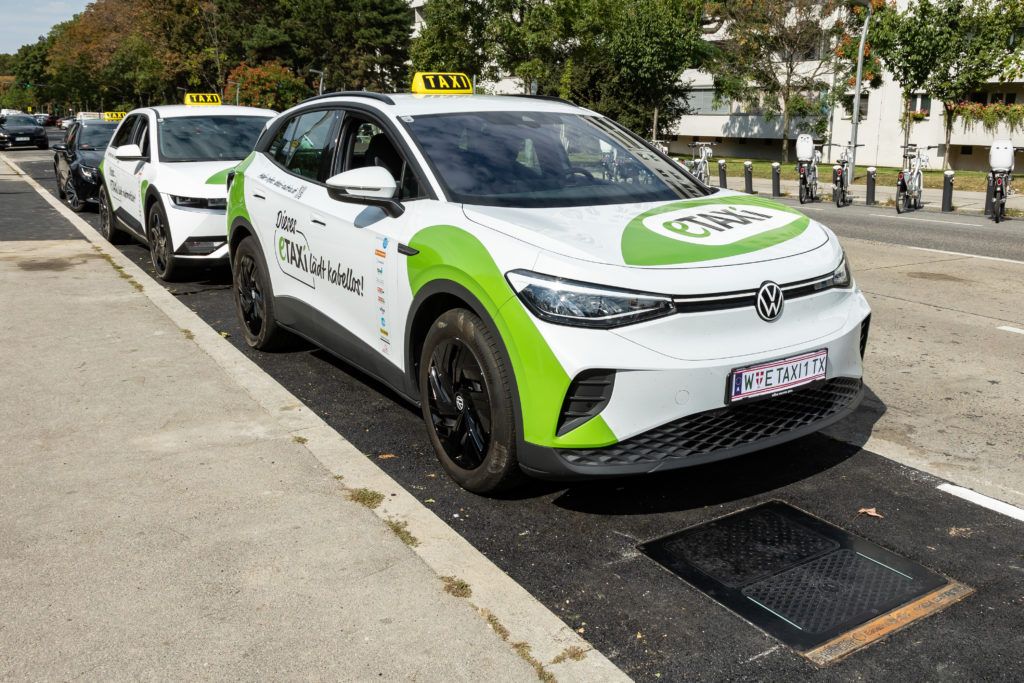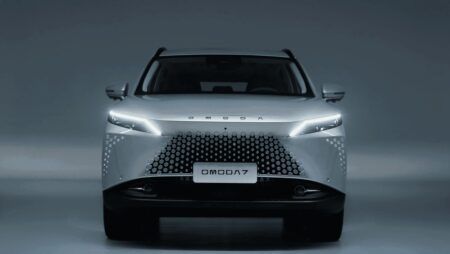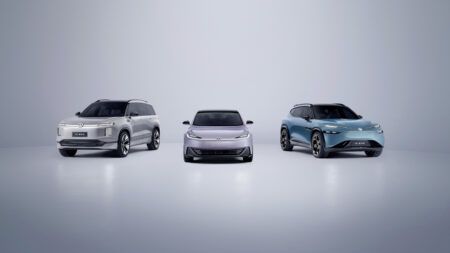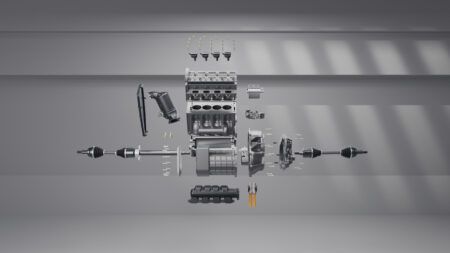The roll-out of the eTaxi Austria project – where 66 e-taxis and over 60 charging points are being equipped with the automated conductive Matrix Charging technology – has gone into operation on Vorgartenstrasse in Vienna. The process of implementation at Schillerplatz in the city of Graz has also begun. To lower emissions and further improve quality of life in the cities, a total of eight taxi stands and 56 vehicles in Vienna as well as two stands and ten vehicles in Graz are being upgraded by car service stations from Volkswagen and Hyundai with the Matrix Charging technology, developed by the Austrian technology company Easelink.
Instead of plugging an electric car into the charging station with a cable, these vehicles are equipped with a connector on the underbody which can be connected to a charging pad at the taxi stand with the push of a button. Thanks to automated charging directly at the taxi stands, the electric taxis are charged automatically, without the need to leave the vehicle or visit a dedicated charging station – an essential factor for ensuring smooth electric taxi operations. The first taxi stands have now been equipped with the technology, laying the cornerstone for roll-out of the project. The electric taxi drivers can make use of this infrastructure with two of the most modern electric vehicle models, the VW ID.4 and the Hyundai IONIQ 5. The eTaxi Austria project will run until the start of 2025. Efficiency, robustness, and the cost factor were the decisive factors by the cities of Vienna and Graz in the technology decision for Matrix Charging. The conductive energy transfer has an efficiency of 99 % and the technology has significantly lower manufacturing costs than inductive charging systems.
“We are very pleased to have worked alongside Vienna and Graz over the course of many years on converting the taxi fleets,” said General Secretary Herbert Kasser of the Federal Ministry for Climate Action, Environment, Energy, Mobility, Innovation and Technology (BMK). “Since 2013, the BMK has provided funding by means of various programs that has helped lay important groundwork in Vienna and Graz. This makes it all the more gratifying to witness this project based on innovative charging technology developed in Austria successfully positioning climate protection as an opportunity for the local economy.”
As of 2025, only emission-free vehicles will be authorised for taxi operations in Austria.





